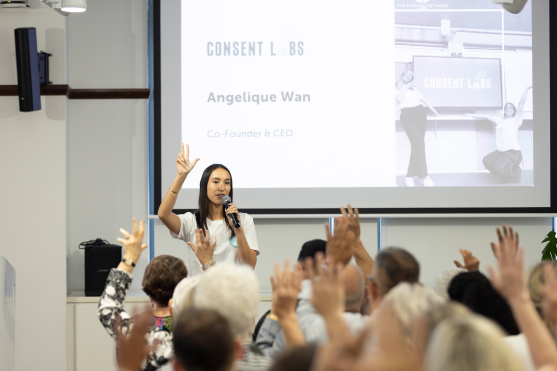New trends in giving favour disruptors and causes over established charities

The landscape of philanthropy is undergoing a profound transformation and McCrindle’s NFP Insights: Empowering Impact report, published earlier this year, provides important data for not-for-profit leaders looking to secure their organisations’ futures. The Funding Network Australia CEO, Kristen Lark, reflects here on the new patterns in donor behaviour.
Despite the challenging economic environment, generosity in the community remains robust and the motivation to give high. However, giving is shifting away from traditional patterns. McCrindle’s report shows that donors are embracing spontaneous, need-driven giving and increasingly favouring causes or issue areas over committing to individual organisations. At the same time, younger donors are leading the trend away from established charities towards disruptors and increasingly acting as advocates for the causes they care about.
I was particularly struck by these insights in the report:
- Five in six Australians are giving financially
- 68% of all donors value the cause area or need over familiarity and reputation of the charity
- 61% of Gen Z prefer to give to a start-up charity versus 36% of older donors
- Nearly half of Baby Boomers and 65% of Gen Z are “opportunity givers” who give when they hear about a need/issue or are approached for support
- Younger generations are more likely to be generous and often spread their donations across multiple charities.
Source: NFP Insights: Empowering Impact, McCrindle Research, 2024

These trends are mirrored in the growth of collective giving models across Australia and our experiences at The Funding Network (TFN). It’s heartening to see young people embracing “opportunity” giving, supporting early-stage charities and championing causes such as mental health and homelessness. With 94% of all donations going to the largest 10% of charities, grassroots charities remain woefully under-funded despite their significant contributions and impact. Enabling a broader number of charitable organisations to thrive, not just the largest, most visible and influential is the only way we can address the complex and daunting social challenges we face.
The Funding Network provides a platform to social disruptors. We have cultivated a network of givers who believe in these social entrepreneurs and it is unsurprising that younger philanthropists are also drawn to their agility, innovation and fresh perspectives. They want to see immediate, tangible impacts from their contributions and are willing to take risks on unproven yet promising initiatives.
As the McCrindle research notes, the opinion persists that small charities lack the fiscal oversight of larger non-profits. It’s crucial to recognise the unique role organisations like TFN play in vetting early-stage programs. By maintaining high standards and fostering diverse, community-driven initiatives through due diligence and an independent selection process, TFN directs funding to the highest potential programs at a critical moment in their growth.
As demographics continue to shift, fundraising and communications strategies must also shift. It’s significant that nine in 10 Gen Z donors are actively advocating for a charity they support. They want stories and shareability – this demands a dynamic, story-driven approach that highlights impact and lived experiences. Fundraising campaigns should leverage digital platforms and social media to engage with younger audiences. Creating interactive and participatory giving experiences, such as crowdfunding and virtual events, can also attract and retain younger donors.
Collaboration between charities presents tremendous opportunities to unite and empower donors to achieve systemic change. By working together, charities can leverage their unique strengths, share resources, and amplify their collective impact. Together 4 Youth is a network of experienced organisations dedicated to enhancing student wellbeing and preparing young people for life beyond school. Similarly, the newly formed The Dreena Collaborative will bring together six charities focused on connecting animals and people to collaborate on smart collars, advocacy and volunteering and for great impact.
For those willing to embrace it, the shift in giving patterns presents fresh opportunities for disrupting conventional approaches and driving social change. By understanding and adapting to these trends, we can ensure a more equitable distribution of resources across the charity sector, fostering innovation and addressing the most pressing social issues of our time.
McCrindle’s NFP Insights: Empowering Impact report can be downloaded online.